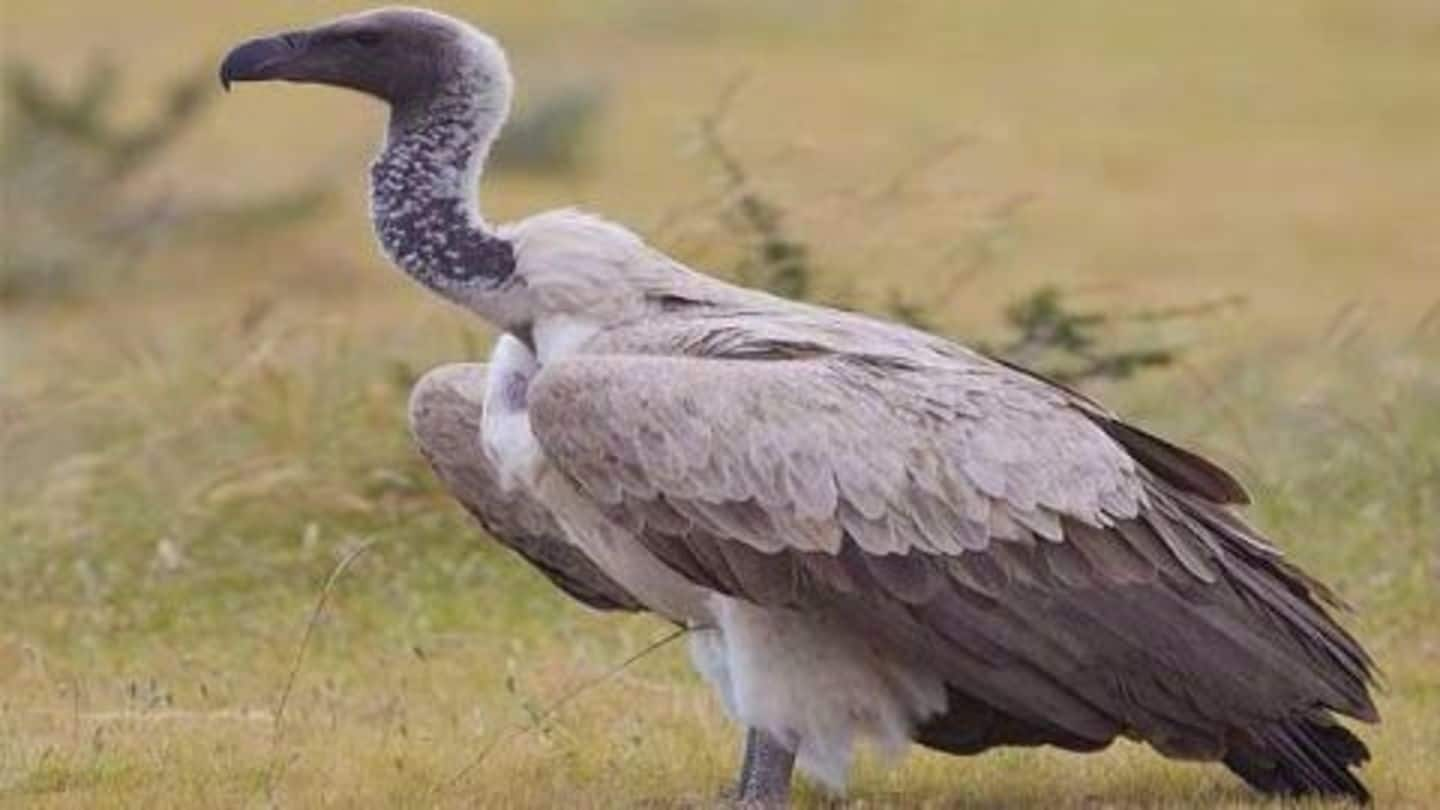
Vulture conservation: Multi-dose vials of diclofenac banned
What's the story
In a move towards conserving vultures, Union Ministry of Health had banned multi-dose vials of painkiller drug diclofenac in the last week of August. The availability of 30 ml diclofenac vials so far lead to its misuse on cattle. The ban now restricts diclofenac production to human formulations in a single 3ml dose. This is likely to bring down its usage.
Endangered
Three vulture species part of endangered list
For a decade, the population of three vulture species- oriental white-backed, long-billed and slender-billed vultures have declined in South Asia. Millions of white-backed vultures shrank in number by 99.9% to a mere 11,000 by the early 2000s. Populations of two other species– long-billed vulture and slender-billed vulture – dropped by 97%. All three are listed as critically endangered in the IUCN's Red List.
Diclofenac
How does diclofenac affect vultures?
Diclofenac is a common anti-inflammatory drug used in humans, as well as by farmers to treat minor ailments like inflammation, pain and fever in livestock. The drug though is toxic to vultures that feed on the dead cattle treated with diclofenac. The vultures that ingest diclofenac through these carcasses become prone to fatal gout or kidney failure, ultimately leading to their death.
Personal
Veterinary use of diclofenac banned in 2006
The government had banned the formulation, manufacture, and import of veterinary diclofenac in 2006 after finding the effects of the drug on vulture population of the country. Meloxicam was promoted as a substitute anti-inflammatory drug.
ecological
Importance of vultures in ecosystem
Vultures do not generally kill their own prey and feed largely on dead animals. As scavengers, they play a very important role in the ecosystem. They contribute to the decomposition of dead animal matter, thus cleaning the environment . By digesting caracasses infected with diseases like anthrax, cholera, botulinum toxin, and rabies, lethal to other scavengers they also reduce the spread of diseases.
Misuse of diclofenac
Misuse of diclofenac meant for humans
Despite the government's ban of diclofenac, cattle were found to be illegally treated with human formulations of the drug. Meloxicam, the alternative drug is more expensive causing the diversion of diclofenac meant for humans to veterinary use. According to some ornithologists, it was the availability of large multi-dose vials of 30 ml, which were facilitating the illegal veterinary use of the drug.
Do you know?
International Vulture Awareness Day
The first Saturday in September each year is International Vulture Awareness Day. With some species under severe threat of extinction, this day aims to educate the public about the critical role of this bird to the well-being of the environment.